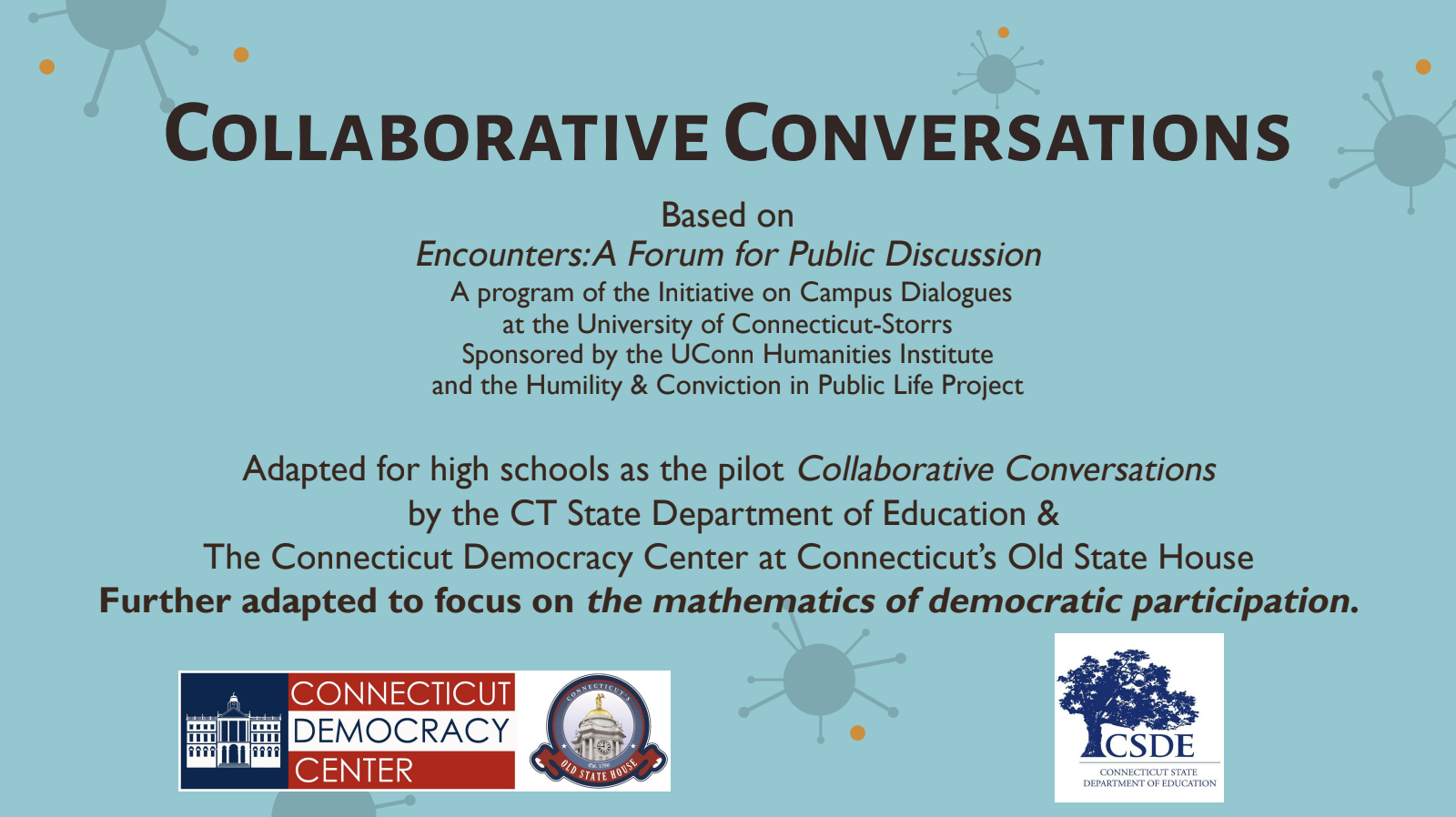
The Connecticut State Department of Education (CSDE) emphasizes collaborative conversations as a means to foster student engagement, improve learning outcomes, and enhance communication skills. These conversations are seen as a high-yield instructional strategy that can benefit all students, including English Language Learners
As students work together in a group context, they learn to accept different points of view, ask probing questions, and bargain to reach harmony. These skills are precious in academic, personal, and professional lives.
How does the original Encounters model work?
- Encounters brings members of the public and topic experts together to explore topics of interest through structured dialogue.
- Before the program, participants review short readings related to the topic being discussed. This shared prior knowledge grounds the conversation in sound information and gives people the confidence to speak up.
- A head moderator introduces rules of civil conversation and guides the program, which consists of several “rounds” of timed conversations among groups of 6 – 8 people.
- In round one, the moderator shows an excerpt from the shared readings and a prompt question. Each participant has 2 minutes to speak on the subject, with no interruptions. Others must practice listening.
- In the next rounds, the moderator again shows excerpts and questions and each group has an open discussion, using the listening and speaking skills they practiced in the first round.
- In the Open Forum round, each group works as a team to form a collaborative question, which the topic experts answer. This satisfies curiosity and demonstrates the value of bringing scholarship, context, and real-life experiences into discussions of challenging issues.
Sequence of Rounds for Collaborative Conversation
- Round 1 – Timed Conversation (Individuals Share)
- View the reading together
- Look at the questions and reflect
- Each person shares their thoughts for 2 minutes, uninterrupted
- Round 2 – Timed Conversation (Collective)
- View the reading together
- Look at the questions and reflect
- Have an open conversation following the table rules for 10 minutes.
- Round 3 – Forming Collaborative Questions
- Each group works together for 3 minutes to create collaborative questions to ask the experts.
- Round 4 – Open Forum
- One student from each table shares their group’s question and experts field them collectively for 10 minutes.
- Takeaways
- What did we learn about conversations? About the topic we discussed? About ourselves?
How do Collaborative Conversations and Encounters connect? – key features of the high school adaptation of Encounters
- Rather than telling people how to have a good, polite, respectful conversation, Encounters provides opportunities to learn and practice conversation skills in a friendly environment.
- The model isn’t focused on “winning”. It’s not a debate. There is no persuasion. It’s about exploration and understanding.
- The program emerged from UConn’s work on Humility & Conviction in Public Life.
- This approach acknowledges that it’s fine to come to a conversation with convictions – but they should be tempered by humility.
- In other words, we should be humble enough to know that we can be wrong, that we can learn, and that listening to others will help us grow.
To read more about Collaborative Conversations: https://www.educationaldesigner.org/ed/volume5/issue18/article75/